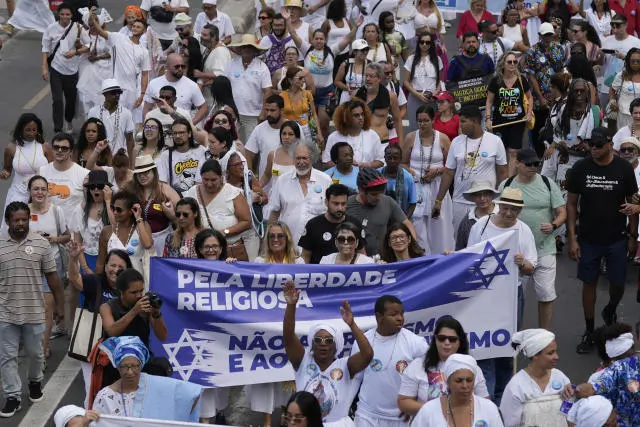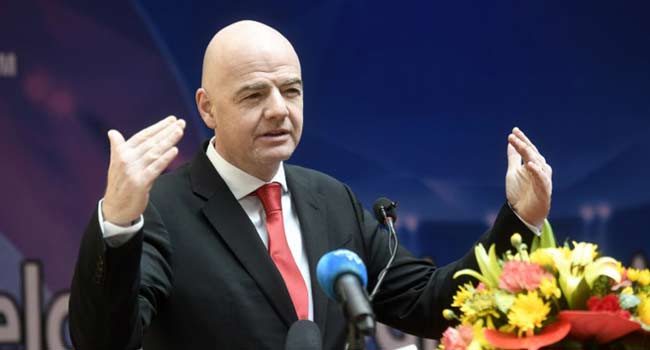March for Religious Freedom in Brazil: A Call for Tolerance
On Sunday, practitioners from many religious groups marched through Copacabana, Rio de Janeiro, to advocate for more religious tolerance in Brazil.
Men, women, and children marched, holding banners, dancing, and performing traditional rituals, to commemorate the country’s diverse religions and faiths.
They took part in the 17th edition of the Defense of Religious Freedom march.
Rio is home to one-quarter of the practitioners of Afro-Brazilian religions, which have seen an increase in intolerance.
Everything that comes from black people and people of African heritage is devalued; if we do not remain fast in our religion, we will lose strength; thus this walk is to demonstrate that we are standing, that we will endure, and that we will not give up,” Vania, a Candomblé practitioner, said.
Christianity dominates the Brazilian religious scene.
While the Brazilian constitution guarantees the free exercise of religion, incidents of contempt and violence have increased.
The attacks range from verbal abuse and discrimination to temple damage and forced evictions from localities.
Jail time and penalties
In the state of Rio, evangelical Christianity has grown, particularly neo-Pentecostal churches created since 1970 with the goal of preaching their beliefs to non-believers.
According to experts, while most neo-Pentecostal proselytizing is peaceful, the spread of the faith has coincided with an increase in intolerance toward traditional African-influenced religions, ranging from verbal abuse and discrimination to temple destruction and forced expulsion from communities.
Between 2018 and 2023, the Brazilian government’s complaint office reported a 140.3% increase in the number of religious intolerance complaints in the country.
Religious intolerance charges in Brazil carry a maximum sentence of five years in prison and a fine.
Sources • Odia



